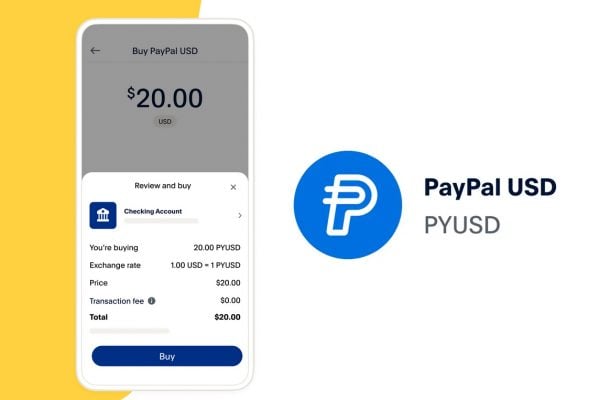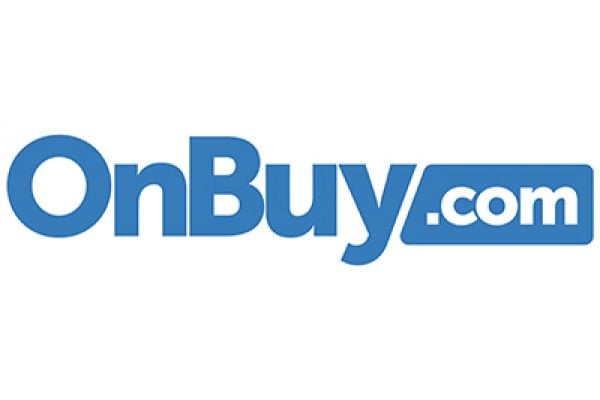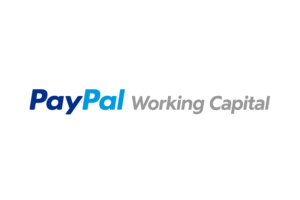A says that they were told by a PayPal support rep that the company is planning to introduce a new policy of holding a proportion of all sellers’ payments to protect itself against chargebacks:
We received an email out of the blue from Paypal on Saturday to let us know that our account that we have held for six years will now be subject to a rolling reserve of 6%. This means that from now on Paypal will deduct 6% of all of payments and hold them on a rolling 6 month basis to protect itself against chargeback’s. [sic] … According to the person I spoke to at Paypal yesterday this is something that is rolling out to ALL Paypal accounts and that we are ‘lucky’ as some people are being charged up to 20% with 10% being the norm. … When I asked why we had not had any notice and when this was announced I was told by the Paypal agent that this was an ongoing process that started at the beginning of the year and that they had 60 million accounts to go through.
We’ve heard from several sellers that the same has happened to them over the last year or two, and PayPal’s user agreement makes provision for putting holds on a proportion of a seller’s account for a number of different reasons, including a couple of cover-all clauses that mean they can instigate a hold if they feel your business is more risky than they’d like. It’s also normal practice for merchant accounts to hold a reserve.
But PayPal doing this to every seller, regardless of the reality of their account, seems drastic: does the support rep have it right? We asked PayPal UK for a comment; here’s what they said:
It’s certainly not true to say that PayPal is holding 20% reserves on all seller accounts.
We only apply reserves to a small proportion of sellers’ accounts, and typically allow these sellers to withdraw 95% of their account balance. The remaining balance is held for a set period of time, usually 60 to 90 days.
Our aim is to protect consumers and PayPal while enabling a flourishing buyer and seller community. The decision to apply a reserve to an account reflects a host of factors, which may include the level of customer complaints and chargebacks, the financial performance of the seller’s business and the amount of information available about the merchant. We also consider other ways of mitigating the risks involved, such as personal, directors’ or bank guarantees, but again it is rare for PayPal to require these. Decisions are taken case by case.
So it’s not going to happen to everybody – but it could still happen to you, and it’s something that every seller needs to consider, and ensure their business and their family could survive.
If you’ve had PayPal put a hold on your account, let us know what happened in the comments.










86 Responses
I’m sure PayPal merchants are going to be irate over this but only because they’ve had it so good for so long. Reserves are standard in the credit card world and by far the most effective way to combat seller fraud.
Actually that statement from paypal says they dont put a hold on every account, NOT that they do not have plans to.
So its a pretty rubbish denial, as it doesnt answer the question asked.
#pwb not sure about reserves being the standard. Do any of the UK banks which offer merchant services hold reserves?
I don’t know of any UK merchant services provider that holds funds in reserve.
#3 Not in my experience, but then again, Paypal isn’t a bank,is it? Had a look at NoChex once, they wanted to hold 5k on reserve,as if, muppets.
Last November we received this email from Paypal:
As discussed please can you send me the information below for the appropriate department here in PayPal;
– 2008 financials
– Suppliers contact information
– Invoices
– Business documentation (eg VAT certificate)
Thank you for your cooperation.
Kind regards
There was no explanation why this information was needed. A week later we had a phone call from our Account Manager at Paypal to tell us that earlier that day a 3% reserve had been put in place on our account.
Over the next few weeks we received various explanations from different people at Paypal, none of whom appeared to have been properly educated as to why and how the Reserves were being placed. Eventually we spoke to someone from ‘Risk’ in the States. He explained that the reserve we had received was because we sell ‘high-risk’ items, and we have a high number of non-deliveries. We sell children’s bedding which are definitely not high-risk items, and he would not elaborate on how Paypal came to the conclusion that we have a high number of non-deliveries.
I’t difficult for us to work out how to improve these aspects of our business since Paypal won’t give us any specific figures, so it looks like we’re stuck with this reserve. Currently Paypal are holding nearly £7,000 of our money.
If anyone else is having these problems, and knows how to convince Paypal to remove the reserve, we’d love to hear from you.
If you have Seller Protection & Buyer Protection why on earth would you need a reserve..
A. It’s not rocket science and the end game is a little to obvious.
Because the items we sell are low value, orders are sent standard Royal Mail so we don’t qualify for Seller Protection. We sell a lot of items on eBay with free p+p so keeping our shipping costs low is vital.
we once let out a chalet in the grounds.
we used paypal to take payment and some silly bugger at paypal insisted we provided our suppliers details invoices and proof of ownership
#8 This move is about buyer protection though surely?
I not sure how this is related to buyer protection. There was never a problem before the reserve was put in place. If a customer said his goods hadn’t arrived, we would simply refund him and put in a claim with the Royal Mail. The buyer didn’t lose out, and Paypal certainly weren’t out of pocket.
We’ve been with HSBC and BOS through our website and neither of these have felt the need to apply a reserve. Nor do we get this problem from Amazon.
#11 Well, Paypal are claiming that the money is needed to cope with an increasing number of chargebacks,fraudulent seller activity etc if they hold the money in reserve they have some insurance if you go tits up.
Personally I don’t think it has much to do with either, eBay are cleaning again, the weak will get pushed aside and trampled on, people with sound businesses will struggle on regardless and eBay will claim it’s in the interest of the buyers.
Take a long hard look at the risks involved here – can you afford this potential of up to 20% of your income to be tied up with Paypal?
Also remember contrary to a statement above for us Paypal Europe is a registered bank – in Luxembourg.
In the event Paypal hits the rocks (which in this environment can not be ruled out), getting your money back will be long and tortuous – i.e Icelandic banks
It’s an incredibly bad time for PayPal to be imposing this on sellers with little (or no!) notice. With the credit crunch biting, seller finding it difficult to obtain credit and suppliers being tighter on payment terms coupled with buyers looking for ever competitive pricing it really wouldn’t surprise me if the move pushed sellers out of business – and that includes sellers that would otherwise have traded through the difficult times 🙁
“it really wouldn’t surprise me if the move pushed sellers out of business”
Thats eBays end game Chris, they want big corporates with big inventorys, they do not want silvers & golds, and no amount of eBay spin and smoke screens will convince me otherwise.
is Paranoia setting in ,
I would hope that this only means , paypal rather than totally blocking an account with problems ,simply hold an amout as security , which still allows the account to trade using paypal
“they want big corporates with big inventorys, they do not want silvers & golds”
thats us ok then were platinum lol
#18 Jobs for the boys Norf 😆
It’s like the house of lords.
we always hold a reserve in our paypal account anyhow
to cover charge backs, refunds ,etc
#17 It *is* an improvement on the old “We’d like to part ways in a way to disrupt your business as little as possible” which is that PayPal used to do in the old days when they came across an account they didn’t fancy any more. Still not good though – I know people who have had their reserve set at a percentage that with their turnover means that PayPal will be holding on up to £20,000 or more.
That’s a lot of money to be tied up not working for you and not even earning interest!
#21 A frightening scenario Chris, and one which will no doubt force many people and businesses off the site.
As a company we certainly wouldn’t entertain such a trading relationship and would just leave eBay immediately.
if we were making so much out of using paypal
that they could get £20.000 as a reserve we would be delighted 😆
and anyone who is using £20.000 to earn interest these days is Crackers 😆
Paypal has the Aussie Pay mate sniffing round their watering hole, they will need to keep it sensible
Not to mention EDDIE lol
It’s not £20k in profit Norf, it’s turnover, how these people supposed to pay there suppliers,taxes etc if all that cash is tucked away in paypal’s coffers.
We;ve been hit with this too suddenly and out of the blue they imposed a 6% rolling reserve with a 90 day remmitance.
So thats 18% of a months turnover which for us works out at £30k.
I spoke to paypal about it and they asked me to send in financials for 3 years (profit/loss, etc) and we are waiting to see what they say.
if paypal start withholding unrealistic amounts and percentages
paypal are buggered. because no one will use them. and the outcry would cripple their business,
#26 When Paypal placed the Reserve were you given any options? We were told (2 weeks after the Reverse had been placed) that we could choose between 3% or a cap of $15,000. At the time, these figures would have been about the same. We chose to have the 3% and since then have stopped all our non-eBay payments from using Paypal. Our turnover is up, but the amount going through Paypal is down.
#27 problem is if you want to sell on eBay you have to use paypal, I would just leave, I couldn’t be arsed with that nonsense.
Is there another online platform you could trade antiquities on, at the same level you do as eBay Norf ? if they nabbed 10% of your swag on a rolling 90 day basis would you stay?
#29 Very simply if PayPal decided to sit on 6-10% of my turnover for the next three months that would roughly equate to the VAT bill at the end of the quarter.
“Dear Mr VAT man, sorry but I can’t pay you because PayPal has your money” isn’t going to go down too well, but that’s realistically what the situation would be. 😯
I dread to think what happens if you don’t pay your VAT on time – never not paid and really wouldn’t want to find out what happens if you don’t 😯
#30 They send you a pink letter Chris, 3 strikes and your out.
We got done on a big job a few years ago, we put an outside whirly on the deck of a huge yacht called the talitha g, they paid the main contractor cash on completion and he left my lad stranded in Barcelona, it caused no end of cash flow problems for months after, one day a vat collector turned up at the office and said he would send a lorry around to clear the place if I didn’t pay X, he sat in the office and waited for me to get back from the bank with cash.
I find it impossible to believe that Paypal don’t know the problems this will cause the small/medium size sellers affected, therefore I can only come to one conclusion, eBay doesnt want them.
whirly,
ebay/paypal already snaf,fle 10% of my turnover and dont give it back 😆
the taxman gets a slice the vat man grabs some t,he council gets rates etc etc etc, wage bills, paye gawds knows what , running a business is all about some sod chiseling its cut,
though seriously .we would need to look at the figures. if we were making money we would stay ,if we were not, we would go, its as simple as that
#32 “if we were making money we would stay ,if we were not, we would go, its as simple as that” Thats the trouble, you could be making for example 50k profit a year, and paypal could be holding most of it… you have a good business on paper but you couldn’t buy your groceries with it.
a bit like the situation alot of companies are in now, perfectly good companies are going tits up because the banks are not lending. Very sad.
#31 “I find it impossible to believe that Paypal don’t know the problems this will cause the small/medium size sellers affected, therefore I can only come to one conclusion, eBay doesnt want them.”
Maybe eBay/Paypal don’t want us, but we still get phone calls from Paypal every month trying to get us to sign up and have Paypal on our website. So far, we’ve declined 😀
its all a bit hypothetical at the moment, I think a lot of scaremomgering and fear of the unknown clouds the issue,
we will deal with it ,when and if it happens,
and the RBS is quite happy to lend us money so there is still funds available out there
Paypal is protecting itself from charge backs? My latest client has one or two instances this month of paypal passing the loss onto the seller and nabbing it from his account. It was confirmed by his account manager.
Currently on his account, if there is a charge back they take it from his account or if there is no paypal balance, directly from his bank account.
This can happen up to 14 days after the item was sent out, we are just fortunate it has not broken £50 yet!
When customers pay direct into our bank accounts (by IBAN or domestic bank transfer) our banks never, ever place a hold on funds. Any old-fashined paper payments like cheques or drafts start to earn interest after a few days from deposit. Since PayPal is registered as an EU bank why don’t they work the same as other banks (for non-credit card based transfers)? Or are they different?
Once a reserve has been placed, is there any information from Paypal as to how sellers can qualify to get it removed? When we asked Paypal, their answers were very, very vague.
Lino, I’ve yet to see any information on that, either from PayPal or from sellers who’ve successfully managed it.
Anyone, anyone?
Are you sure Paypal is registered as a bank? They even moved their registered office to evade certain laws, charming eh?
Thanks Sue, I haven’t come across anybody yet who’ve had a reserve removed. If you do hear from anybody, we’d be very interested in what they have to say.
You can get around a reserve by speaking to your account manager, they are only issued to companies with a bad or no credit rating. My company has declared a loss the last two years and our company credit ratting is poor as a result, never been in debit and never missed payment on anything however showing a loss onthe books for two years in a row, The fact I drive around in a nice 58 reg BWM and have drawn £100+ salary in not important its what you declare to the tax man, I dont like declaring a profit and hence have been aksed to give 5% reservice to paypal. , i,e when you do a check the sales are in decline and we have declared a loss. I can 100% see why paypal need to hold funds and this is common with new companies and companies with poor credit ratings. You can get around this by supplying up to date accounts from your accountant that show a profit and or supplying a directors guarantee.
I good recorded or paypal is not good enough, you need to a sound set of company accounts or sign a directors guarantee. If my case better to sign the guarantee than have paypal hold 5% of my turnover.
When we first started taking credit cards on the net I had to sign a guarantee for £30,000, however if you use a proper credit card company like natwest streamline and Protx as a payment gateway you can take debit cards for 50p and not the 2,4% that paypal will charge you, I,e if you a high turnover retailer you should 100% look to move away from paypal and open put a credit card account with the likes of HSBC or natwest streamline ( I do not recommend Barlcays)
I turn over about 30k a month and pay 30p for debit cards and 1,4% for credit cards, credit cards in the same as paypal but I save a lot of money via debit cards.
Has anyone actually weighed out what the cost implications of this are? and wether it leaves it a viable option to use PayPal or eBay at all anymore?
Paypal want (for us) to hold 5K minimu reserve + 5% rolling reserve for 6 months, and 6 months after we close our account. We put through about 100k/month
In 6 months this will account to approx £35k.
As we intend to remain in business forever and ever (i.e. we have no plans to cease trading) and if we carry on using paypal they will be holding this £35k (maybe more if turnover increases) forever and ever.
So in effect the cost of us accepting PayPal is £35k.
Now how many sales do we have to do (via Paypal) to make £35k? A bloody lot I’ll tell you (close to 1000). Now do you realistically think we will lose 1000 laptop sales because we increase prices by 10% and offer discount for cc use? Somehow I dont think so.
Couple this with the fact that in effect you are funding PayPals working capital, and if they go bust (they may not have direct exposure to the mortgage crisis but they have heavily promoted credit cards and anyone having one that goes bankrupt will cause paypal to lose money, plus if any PayPal customers go pop they lose money)there is NO chance you will get your money back.
And then on top, who is going to subsidise our working capital by £35k?
All of these factors are more than enough for us to minimise the use of PayPal.
What no one is thinking is WHAT GUARANTEE ARE PAYPAL GIVING YOU TO THE EXPOSURE POSED BY *THEM* AS A MONEY HANDLING SERVICE PROVIDER USED BY YOU???
In the current banking climate everyone shold be VERY careful where their money is being held, especially if there is a delayed-withdrawl process.
Red bells should be ringing for everyone by this action thats being taken by PayPal
and what happens in 3 months or 6 months when you’re acccount gets reviewed and they decide to “up” the reserve?
“Sellers who state in their listing that they accept certain payment methods must not selectively offer those payment methods to buyers or discourage buyers from using those payment methods.
This means that sellers must always accept payment from buyers through the payment methods they have selected in their Payment Details section of their listing, including PayPal, and must not act in any way to discourage buyers from paying by these methods.”
We in no ways are discouraging people not to pay by any of the methods. All we are saying is that we PREFER a certain method because it is more effecient for us and if you use thid method we can offer you a discount.
sue thats just a flying comment with no justification or clarification and a single pinks opinions.
so what would you say to the “paypal Preferred” logo? does that breach the T&C’s also in that case it discourages the OTHER forms of payment you accept?
#50 That doesn’t offer an incentive to use Paypal though. I see your point but it’s just one of those things.
Put your phone number in your listings and hopefully the customers will call you, you can then get them to pay over the phone.
ChannelAdvisor Catalyst Conference 2009: Is this worth attending? anything new and/or different?
#51 it doesnt actively offer an incentive but the way ebay push PayPal in logos of “seller protection” and during checkout the transition from ebay purchas eto paypal payment is integrated seamlessly is an equal opression of other payment methods.
also#51, what about PayPal vouchers that are mailshotted out then? They do offer cash incentives do they not?
So Can I list everything and then mailshot credit Card 10% vouchers to everyone?
re: #52 sorry but I can’t find another place to ask a question, a pointer in the right direction appreciated 🙂
#55 The forum is usually quite helpful 😉
#54 eBay can do what they like, they are their rules to break, if they are even being broken.
@ Hamtt: I don’t believe James makes “throwaway comments”: if he has stated it is against policy, you can bet that it is against policy. If you want to risk offering discounts for other methods, then please don’t be surprised if your listings get pulled.
Regarding “PayPal preferred”, you can turn that off if you want – it’s in My eBay > Site Preferences > Payment from buyers.
I’m sure James will clarify the position tomorrow on your PSB thread.
thanks Sue, I have that link,
was hoping for a chat about the event itself 😉
@Sue, as you know I’ve not been here much so not used to the site. I’ll find it. Thanks, x
And here’s another “follow-up” from PayPal – I’m not convinced they’ve actually read this post before they responded to it, mind you, because the only people mentioning “20%” are their support staff:
https://forums.ebay.co.uk/thread.jspa?threadID=1100224597&start=113
#62 “PayPal has sophisticated ways of monitoring accounts to spot certain ‘trigger events’ which suggest action is required. For example, we might review an account where there has been a sudden increase in chargebacks, or a big increase in buyer complaints. These are examples of the types of events which may prompt us to apply a reserve.”
If this is the case, why would Paypal not give us any examples or figures to justify the reserve being put in place? Unless Paypal tell us WHY they are unhappy with us, it is very difficult for us to rectify this problem.
A little transparency from Paypal would go a long way to resolving this.
@Lino – totally agree about the transparency – how are you supposed to do business with a company who won’t tell you what the terms of that business are?
*however* PayPal’s excuse would be that if they tell you what they’re looking for, people will game the system. FWIW…
TRANSPARENCY to their decisions would stop alot of people moaning. Also PayPal providing a GUARANTEE that these held funds WILL NOT be used as their working capital should be an obvious confidence booster on bahalf of PayPal if these decisions are just purely risk-assesment decisions. However no-one (for the time being) at PayPal seems to be able to do either.
Also if this is purely about Risk Assesment then why is PayPal holding the minimum resreve/rolling reserve of Payments that are even being REFUNDED????
If we refund a payment, the risk element associated with that goes so why still hold the money and make us dig out of our pockets to subsidise the refund?
@Sue – Paypal have stated in the top post that “Decisions are taken case by case”
If this is true, they should be able to explain to me exactly why my case is a worry for them. If my chargebacks or customer complaints are too high (and I really don’t believe they are), they should be able to back this up with a figure, and then inform me of what figure I would need to attain to satisfy them.
The only reason I can see why Paypal wouldn’t want to do this, is because they are happier keeping the reserve in place.
@ Sue, knowing from personal history PayPal always ups the ante and rarely reduces it. So chances are in six months when they review the case again they’ll increase the %age they hold or the length of time they hold it for again.
I assume they realised thered be an uproar initially but then people would get used to it and carry on using their services.
@ Sue – All the more reason to start weaning ourselves off them now then rather when we’re in much deeper with them!
An easy way for PayPal to dispel the suspicion that reserves are being used to provide a cheap source of working capital for themselves would be for the reserves to be placed in a trust account with the interest being paid to the beneficiaries.
After 3 phone calls to PP that lasted about 45 minutes each I have determined a few things about Paypal and their practices pertaining to rolling reserves.
1. There is no set criteria for setting a rolling reserve on anyone’s account.
a. This is done arbitrarily by someone with no guidelines in place
b. Paypal is unable to provide or show how they came up with their methodology for placing a rolling reserve, for how long or for the amount.
2. They have no form of Due Process to where one can make a case to provide facts as to why they should not have a rolling reserve placed or for tha amount or duration of the placement.
3. Paypal employees and customer service personnel are intentionally not given information about rolling reserves and therefore can not answer any questions. I find it very hard to believe that I am the only one to ever call regarding rolling reserves!
a. To get the department which handles rolling reserves is almost impossible to find. They apparently will only send you a form e-mail to communicate reiterating what the CS personnel have already said
4.The money which is held does not pay any interest or is held in any form of trust or escrow. This is suspect in it’s own right.
5. I spoke to 12 different people and got transferred 9 different times. Each time I was told that I was going to the correct department that could help.
6. The phone number in the U.S. I received to call are
1-866-837-1851 -Merchent Services
1-866-331-4021- Merchant Services again
1-888-221-1161 Customer Service ( a complete waste of time)
I urge each person who is affected by this rolling reserve issue or has a sense of fairness to write to or contact the U.S. Attorney General’s Office
U.S. Department of Justice
950 Pennsylvania Avenue, NW
Washington, DC 20530-0001
[email protected]
Department of Justice Main Switchboard – 202-514-2000
Office of the Attorney General – 202-353-1555
The taking and use of monies from a person without their consent under the guise of returning it later should be reported. Thank you
@ # 74
Are you sure no interest is earned? I opted into their money market fund years ago and remember reading that the 21 day holds collect interest when opted into the money market account. I would assume rolling reserves would be handled similarly.
#75 that only applies to America (interest), not the Uk.
Our experience with the PayPal reserve notice.. just got the email, stating that reserve of 10% with a 60-day rolling period is being placed on our account. We use PayPal to process sales of software, a few thousand per month. We’ve NEVER had a chargeback or a dispute. so for PayPal to state that that is the main motivation is just a red herring.
To me, this whole thing stinks like a company that wants some working capital at the expense of its customers. 10% of a whole lot of customers’ money for up to 90 days is a great boost to their cashflow.
Basically, because of this, we are ditching PayPal. We are not going to have our business compromised by dealing with an organisation so opaque as PayPal who treat their customers (us!) with such a patronising disdainful attitude. Our search for an alternate online payment processor has given us several leads, including Paymate (Australian) and of course, Google Checkout.
Good luck to those of you who are forced to stick with PayPal, and all tghe best to you as you involuntarily turn your business profits into a slush fund for PayPal’s.
Same exact story as Philip Lamb (#77, March 15, 2009 11:20 am) described:
We, at Software Candy, just got the email, stating that reserve of 10% with a 60-day rolling period is being placed on our account. We use PayPal to process sales of software, downloadable directly from our web site (https://www.softwarecandy.com). We have never had a chargeback or a dispute. We are a 100% reliable & responsible customer oriented business, solving any and every customer concern to his/her FULL satisfaction. So clearly, there is something strange going on in PayPal.
As I read through the comments here, the picture becomes clearer… Very good suggestions are given here. Serious businesses should diversify their payment options, not limiting themselves to PayPal only, Google Checkout only, Moneybookers only, Authorize.net only, etc.
I’ve no way of measuring this, but a fairly high proportion of people complaining about PayPal holds seem to be those offering it to pay for software downloads (off-eBay, obviously). Anyone who sells downloadables probably should start looking for alternative payment processors ASAP.
#78 Try Protx if available to you. Fantastic company.
Sadly, although it is hard to prove that in court (you know, the law sides with the ones who have the money, not necessarily the ones who are morally just), it seems that PayPal was hijacked by criminal organizations. Think about it: if you want to launder money, wouldn’t a company like PayPal be the best vehicle for that?
If you want to learn more about what’s /really/ happening in PayPal, read this inside information in the following link:
I was a middle management type with Pay-Pal
We’ve recently had our 90 day Reserve reviewed by Paypal. We sent them all the information they asked for, and they admitted our company is in a healthy state.
However, they say they will not be removing the reserve, nor will they be looking to do this in future.
They are now saying that the reserve is to cover Paypal should we go bankrupt as they would be liable for all transactions up to 6 months down the line (I thought that was why we paid the fees?).
The impression we were given was that Paypal were looking to place these reserves to as many accounts as possible over time.
We were told that the % Paypal hold would be increased should our turnover with Paypal increase. Not really much of an incentive to grow with Paypal.
All this came to light after speaking to a member of their ‘Risk’ team, and some of it does contradict previous conversations with them.
We asked directly whether there was anything we could do or suppy to Paypal in order to have the reserve removed, and were told quite clearly “No”.
If you’ve got a reserve on your acccount, get used to it. And if you haven’t, I’d get ready for it.
#82 Frightening stuff.
PP could effectively hold onto your companies profits for the entire duration of your business, increasing the amount they hold as you grow.
This must be a total nightmare for any seller effected, especially if you sell on eBay, your only choice then is to leave eBay or lump it and try and survive with a big chunk of your cash taken away from you.
#82 It’s not great.
We feel quite lucky that our reserve is only 3%. Some sellers’ we’ve heard from are having to stomach 10% reserves!
We also asked whether we would be able to earn interest off the reserve, but we’re told due to Paypal’s Banking License this wouldn’t be possible. But we were told this is an option for US reserves.
We’re still selling well on eBay, but are definitely looking to concentrate a lot more time and money away from eBay as a result of this.
# 80 I’m just setting up a website, Whirly, and wondering what payment plan to use. I’m pretty sure what not to use, though. What’s the story with Protx? I hear a bit about it, mostly good but haven’t explored it yet.
#84 We use Secure Trading, and have found them to be excellent.